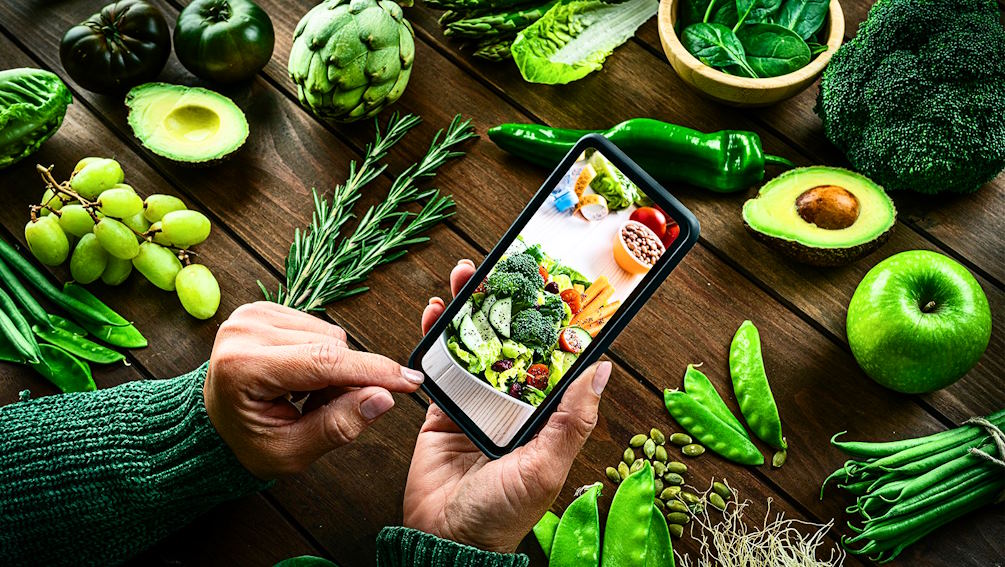In our quest for radiant and youthful skin, we often turn to a myriad of skincare products and treatments. However, we tend to overlook one powerful aspect that can truly transform our skin’s appearance: our diet. The saying “you are what you eat” holds true when it comes to our skin, as the food we consume plays a vital role in nourishing and enhancing its natural beauty. By making conscious and healthy food choices, we can unlock the potential to achieve a glowing complexion and combat common skin concerns.
Foods for a Radiant Complexion
Vitamin C-rich foods for collagen production and skin elasticity
When it comes to achieving a radiant complexion, incorporating vitamin C-rich foods into your diet is a game-changer. Citrus fruits like oranges, lemons, and grapefruits, along with berries such as strawberries and blueberries, are packed with this essential nutrient. Additionally, leafy greens like kale and spinach are excellent sources of vitamin C.
The benefits of including these foods in your diet are manifold. Vitamin C plays a crucial role in collagen production, a protein responsible for maintaining skin elasticity. By consuming vitamin C-rich foods, you provide your body with the necessary building blocks to support collagen synthesis. This, in turn, helps to reduce the appearance of fine lines and wrinkles, giving your skin a youthful and plump appearance.

Omega-3 Fatty Acids for Moisture and Suppleness
To achieve a complexion that exudes moisture and suppleness, incorporating omega-3 fatty acids into your diet is key. Fatty fish such as salmon and mackerel, flaxseeds, and walnuts are excellent sources of these beneficial fats.
Omega-3 fatty acids work wonders for skin hydration and texture. They help to strengthen the skin’s natural moisture barrier, reducing dryness and promoting a smoother, more youthful complexion. Furthermore, these healthy fats have anti-inflammatory properties that can alleviate skin conditions such as acne and eczema.
Antioxidant Powerhouses for Skin Protection
Protecting your skin from damage caused by environmental factors is essential for maintaining a radiant complexion. Brightly colored fruits and vegetables, including tomatoes, carrots, and blueberries, are rich in antioxidants that provide powerful skin protection.
Antioxidants help to neutralize free radicals, harmful molecules that can cause oxidative stress and damage to the skin. By including antioxidant-rich foods in your diet, you fortify your skin’s defenses against premature aging and reduce inflammation. Additionally, these vibrant foods contain vitamins and minerals that nourish your skin from within, promoting a healthy and glowing appearance.
Hydration and Skin Health
One of the fundamental pillars of achieving a radiant complexion is proper hydration. Ensuring that you drink enough water throughout the day is crucial for maintaining skin health. However, you can also supplement your hydration efforts by including foods with high water content in your diet, such as cucumbers and watermelon.
These water-rich foods not only help to keep your body hydrated but also contribute to the moisture levels of your skin. Adequate hydration promotes skin elasticity, prevents dryness, and gives your complexion a plump and youthful look. Remember, staying hydrated is not just about what you drink but also what you eat.

Foods to Avoid for Healthy Skin
While incorporating skin-friendly foods into your diet is essential, it’s equally important to be mindful of the foods that can have a detrimental effect on your skin. By avoiding certain culprits, you can promote healthier and more vibrant skin. Let’s take a closer look at some foods to steer clear of.
Sugar and its impact on skin aging and inflammation
Excessive sugar consumption can wreak havoc on your skin. When sugar enters your bloodstream, it binds to collagen through a process known as glycation, resulting in the formation of advanced glycation end products (AGEs). These AGEs contribute to the breakdown of collagen and elastin, leading to premature skin aging, including wrinkles and sagging.
Moreover, high sugar intake triggers inflammation in the body, which can exacerbate skin conditions such as acne and rosacea. It’s crucial to limit your consumption of sugary treats, sodas, and processed snacks to maintain a healthier complexion.
Highly processed foods and their negative effects on skin health
Highly processed foods, such as fast food, packaged snacks, and sugary cereals, are often devoid of essential nutrients and packed with unhealthy additives. These foods have a high glycemic index, causing a rapid spike in blood sugar levels. This can trigger inflammation and lead to an increase in sebum production, making your skin prone to breakouts.
Additionally, processed foods are often high in unhealthy fats, which can contribute to skin dullness and clogged pores. Opting for whole, unprocessed foods instead, such as fresh fruits, vegetables, and whole grains, can help promote healthier skin.
The role of excessive salt intake in skin dehydration
While salt is an essential mineral, excessive consumption can have adverse effects on your skin. A diet high in sodium can dehydrate your skin, leaving it dry, dull, and lacking moisture. This is because sodium binds with water and can draw moisture away from your skin cells, resulting in dehydration.
To maintain skin hydration, it’s crucial to limit your intake of processed and packaged foods that are often loaded with hidden sodium. Opt for fresh, whole foods and season your meals with herbs and spices instead of relying heavily on salt.





